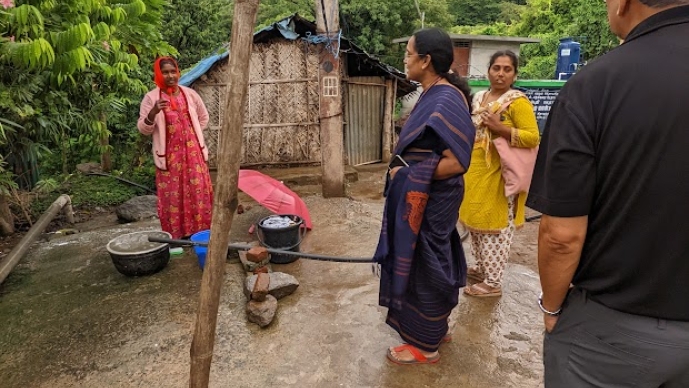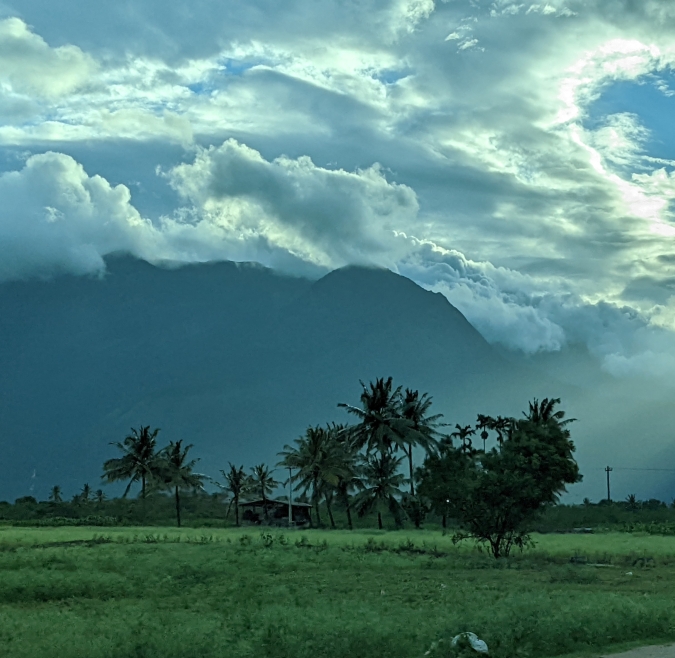Winter: Rutgers-Rooted in Change: Immersive learning for Rural Agro-Food Development in Southern India
The Program
Delve into local traditions and practices in India!
Be part of this inaugural program that will broaden your understanding of Agro-Food practices through a blend of cultural immersion, educational exploration, and collaborative student engagement in partnership with Amrita Vishwavidyalaya (Amrita University, https://www.amrita.edu). You'll interact with faculty and students specializing in plant natural products, food, and agriculture. Beyond the classroom, you'll visit a selected rural village and experience daily life through the host institution's Live in Labs® initiative. Working alongside Amrita University students, you'll delve into local traditions and practices, leveraging your academic experience to craft sustainable solutions for community Agro-Food challenges.

Program Locations

India
Coimbatore
The program is offered in partnership with Amrita University at the Coimbatore campus. Coimbatore is the third-largest city in the state of Tamil Nadu and stands as one of its most industrialized centers. Nestled in the rain shadow region of the Western Ghats, it enjoys a pleasant climate year-round. The area's naturally rich black soil significantly boosts its thriving agricultural industry. While the successful cultivation of cotton laid the foundation for Coimbatore's renowned textile industry, the region also flourishes with expansive coconut plantations and other crops such as millets, bananas, and sugarcane.
Academics
Students have a unique opportunity to earn three academic credits. This experience is particularly valuable for students majoring in Plant Science or Food Science as it satisfies the required Experience-Based Education component at SEBS. Additionally, students pursuing a minor within the Plant Science undergraduate program (such as Plant Science, Agroecology, or Medicinal and Economic Botany) can apply this course toward their elective requirements. For students in other SEBS majors, these credits can also be used towards Experience-Based Education or elective courses, pending approval from the program director or advisor.
COURSE LEARNING GOALS:
- Describe how agricultural practices and food production in rural India differ from modern agriculture.
- Explain the use of plant natural products in cultural and medicinal practices in India (Ethnobotany).
- Identify ethnographic and ethnobotanical issues for rural villages in India through community engagement.
- Formulate through collaboration, possible solutions to those issues by applying pedagogical background and on-site observations and analyses.
The Live in Labs® program affiliated with Amrita University is a multidisciplinary experiential learning program that exposes students to challenges faced by rural communities within India. The students collaborate to develop sustainable solutions through an inclusive approach method and are encouraged “to think outside the box.”
To view the syllabus for this program, please click here (schedule will be finalized soon). Please note this is a sample schedule, and the content is subject to change. Because this is a community-based program, the schedule may change based on the availability of community access. The specifics of the Live in Labs® project will be clarified during the Fall semester.
Housing and Meals
Students will stay in the Amrita University Coimbatore campus in dorms with double occupancy. Three South Indian vegetarian meals (breakfast, lunch, and dinner) will be provided. The meals in this region are typically spicy but delicious. If you have concerns or would like more information about the food, please contact the faculty advisors. Vegan options will be available. You are also encouraged to pack some of your favorite non-perishable snacks to bring just in case!
Financial Information
Program Costs
| NJ Resident | non-NJ Resident | |
|---|---|---|
| Undergraduate | $1,710 | $2,170 |
| Graduate | $1,990 | $2,430 |
Program Cost includes:
- Tuition
- Housing
- Most meals
- Excursions
- Administrative Fees
- Emergency Medical Access Abroad
Out-of-Pocket Costs
| Airfare | $2,000 |
| student visa | $125 |
| Personal Expenses | $150 |
| Total | $2,275.00 |
Out-of-Pocket Cost includes:
The above costs are estimations and represent the known out-of-pocket costs students encounter during their time abroad.
Some of these expenses will be paid for prior to going abroad, such as an airline ticket, while some of these expenses, such as meals and personal expenses, will be paid in-country as part of your daily expenses. As you plan, you will need to budget these costs and spend wisely throughout your time abroad.

